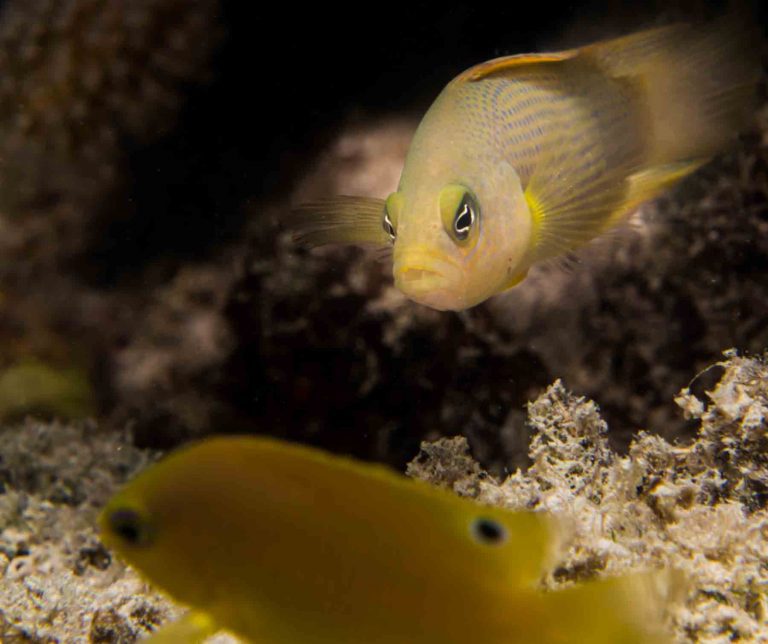The smell of algae-covered bleached coral can endanger reef fish by preventing them from identifying predators, according to new research.

Scientists from Australia and Sweden have found that coral damage prevented common damselfish from responding to the chemicals that would normally indicate the approach of hungry predators.
“Baby fish use chemical alarm signals released from the skin of attacked individuals to learn the identity of new predators,” said Professor Mark McCormick from the ARC Centre of Excellence for Coral Reef Studies at James Cook University in Australia.
“They mix the alarm cue from their wounded buddy with the smell or sight of the responsible predator, allowing them to learn which individuals are dangerous and should be avoided in the future.
“We found that the chemical alarm only worked on damselfish on live coral. Their counterparts on dead coral failed to pick up the scent.”
Dr Oona Lönnstedt from Uppsala University in Sweden, with which James Cook collaborated on the study, said: “If the process of cataloguing and avoiding predators is hindered in some species by coral degradation and loss, then much of the diversity of reef fish could be lost too. Many reef fish need specific habitats that only healthy coral reefs can provide.”
“The Great Barrier Reef is currently experiencing the worst mass coral-bleaching event in its history and coral cover on the majority of reefs is declining sharply,” said Prof McCormick. “If dead coral masks key chemical signals used to learn new predators, the replenishment of reefs could be seriously threatened.”
The study is published in the journal Proceedings of the Royal Society B.
17-May-16

